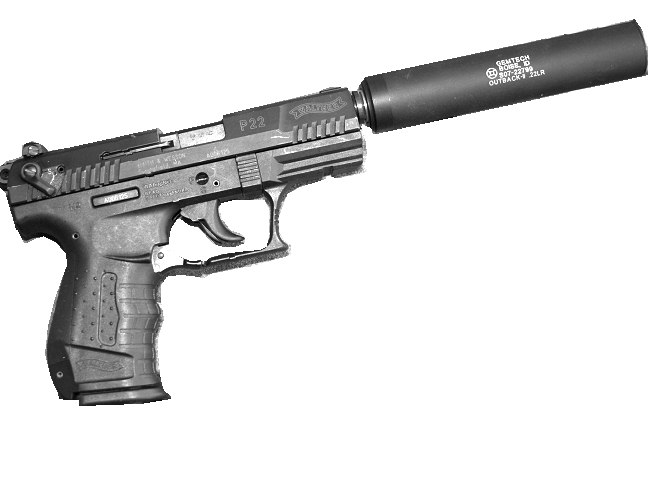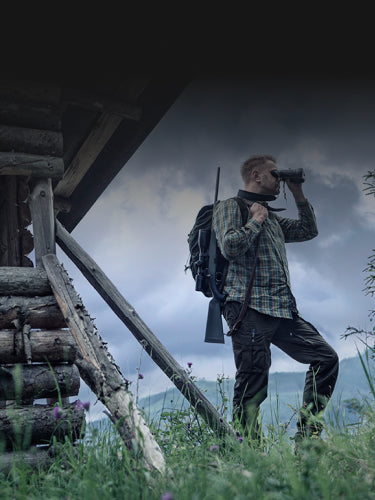On January 4, 2021, on the 117th Congress’ second day, Representative Jeff Duncan (R-SC) reintroduced the Hearing Protection Act. This is his fourth attempt at pushing this bill forward.
The Hearing Protection Act would make firearm suppressors (silencers) exempt from the 1934 National Firearms Act (NFA.)
Rep. Duncan says, “The Hearing Protection Act is a commonsense bill that is important to all sportsmen and women across the country. Personally, I have experienced hearing damage from firearm noise, and I believe easier access to suppressors may have prevented much of this damage from early on in my life.
Bottom line, this bill aims to fix this health issue that has already been addressed by many other countries. Now is the time to ensure sportsmen and women can have the safety and protection they need while hunting and shooting.”
Oddly enough, the Bureau of Alcohol, Tobacco and Firearms (ATF) categorizes suppressors with handguns. This means—when it comes to federal law—the vast majority of firearm laws also apply to suppressors.

Suppressor vs. Silencer
A suppressor and a silencer are the same things (the words are interchangeable;) however, the term ‘silencer’ is a misnomer. A suppressor does not silence a weapon, it only quiets it. Historically, it is correct to call a suppressor a silencer, as the inventor of the suppressor, Hiram Percy Maxim called it the Maxim Silencer. You will also hear it called a ‘can.’
The industry and gun folks don’t necessarily like the term “silencer” because anti-gun types use it as a scare tactic. For example, anti-gun super PAC Americans for a Responsible Solution (ARS), tweeted that suppressors “…make it easier for active shooters to inflict serious harm on our communities without being detected by trained law enforcement professionals.”
Suppressor Design
When a bullet is fired from a firearm, gun powder produces gas to propel the bullet forward down the barrel. Pressure builds up from the gas behind the bullet and when the bullet exits the end of the barrel, the release of built-up gas pressure creates the loud bang.
A suppressor uses a series of baffles forcing the gas to move around, dropping the level of pressure greatly. When the bullet then exits the suppressor, the sound is quieted. To compare, that’s about how muffled gunfire sounds when you wear good hearing protection.
First patented in 1908, Hiram says about his silencer, “The Maxim Silencer was developed to meet my personal desire to enjoy target practice without creating a disturbance. I have always loved to shoot, but I never thoroughly enjoyed it when I knew that the noise was annoying other people. It occurred to me one day that there was no need for the noise. Why not do away with it and shoot quietly.”

His design was found to reduce noise by 66% and recoil 67%. Hiram’s Maxim Silencer was unrestricted, marketed to sportsmen and women and could be purchased from catalogs, hardware stores and sporting good shops.
There is no evidence or record of the silencer’s popularity back then but according to the NRA, Theodore Roosevelt had a Maxim Silencer on his Winchester 1894 “Little 30” rifle. Teddy’s son Archie said, “Father favored the silencer for early morning hunting expeditions to eliminate varmints around Sagamore Hill. He felt it best not to wake the neighbors,” – neighbors who consisted of New York’s high society such as the Vanderbilts and Tiffanys.
Suppressor Laws
Like guns, suppressors had no restrictions prior to 1934 when the first federal gun control law was passed—the National Firearms Act (NFA). The NFA was the result of the Franklin D. Roosevelt administration’s response to organized crime. At the time, mob bosses preferred short-barreled machine guns.
Therefore, the NFA restricts machine guns, suppressors and “destructive devices.” It requires the owners of suppressors to purchase a tax stamp for $200 before taking possession of the suppressor. In 1934, when the law was enacted, this $200 tax stamp was the equivalent of $3,583.71 making it extremely prohibitive to buy a suppressor.
Extended background checks and registration of the suppressor are also part of the law.
Where are Suppressors Legal?
Suppressors are legal to own in 42 states. Hawaii, California, Illinois, New York, New Jersey, Delaware, Rhode Island and Massachusetts have outlawed suppressors. Out of those 42 states, only 2 don’t allow the use of suppressors during hunting—Connecticut and Vermont.

If you live in one of those legal states and are a resident of the United States, you may buy and own a suppressor if you:
- Are 21 buying from a dealer; or 18 years old buying from a private citizen
- May legally own a firearm
- Can pass a BATFE (ATF) background check
How Many Suppressors are Registered in the United States?
As of April 2020, there were 2,000,042 registered suppressors in the United States. (ATF Firearms Commerce Report)
Oddly, it is common practice and preferred to use a suppressor in many European countries. Detailed in his book, Firearm Sound Moderators: Issues of Criminalization and the Second Amendment, Stephen P. Halbrook points out anyone licensed to own a firearm can also own a suppressor without any additional background checks, licensing or paperwork.
The Benefits of Using a Suppressor
Noises louder than 85-140 dB can permanently damage your hearing. Hearing loss can be caused by a one-time event or exposure over time. A .22-caliber gun shot measures about 140 dB. To compare, a normal conversation registers around 60 dB.

Shooters can develop tinnitus (a ringing in the ear) and permanently lose the ability to hear high-frequency noises.
Depending on the gun, suppressor and caliber, a suppressor will muffle the sound of a gunshot to 100-130 dB and lower.
Suppressors are good for:
- Hunters, as they don’t spook game
- Competitors to protect their hearing
- Instructors to aid in training
- Target shooters as a courtesy to neighbors
We also know suppressors are just downright fun!
Do You Need Hearing Protection with a Suppressor?
Since permanent hearing loss can occur at sounds louder than 85 dB, it is recommended you still wear hearing protection when using a suppressor.
Remember, suppressors are legal, and you can own one! As nighttime hog hunters, we wouldn’t go without ours.





6 comments
Carmen, a suppressor and a silencer are the same thing. It is not necessary to purchase them, and they are used as a matter of personal preference. The ATF requires all users to register suppressors per the National Firearms Act of 1934.
Ramin, I would contact your local ATF office for that information.
https://www.atf.gov/san-francisco-field-division/southern-california-field-offices
https://www.atf.gov/san-francisco-field-division/northern-california-field-offices
Hey Leonard. Unfortunately, the ATF requires you to buy a tax stamp and undergo a waiting period for each individual suppressor you buy. The folks at https://deadairsilencers.com/ will be happy to help you.
Hi there
Can gun instructors use silencers to teach in California or no?Please guide me as soon as possible. Thank you
What is the difference between suppressors and silencers snd when did it become necessary to purchase suppressors why is there a need to register suppressors i understand silencers